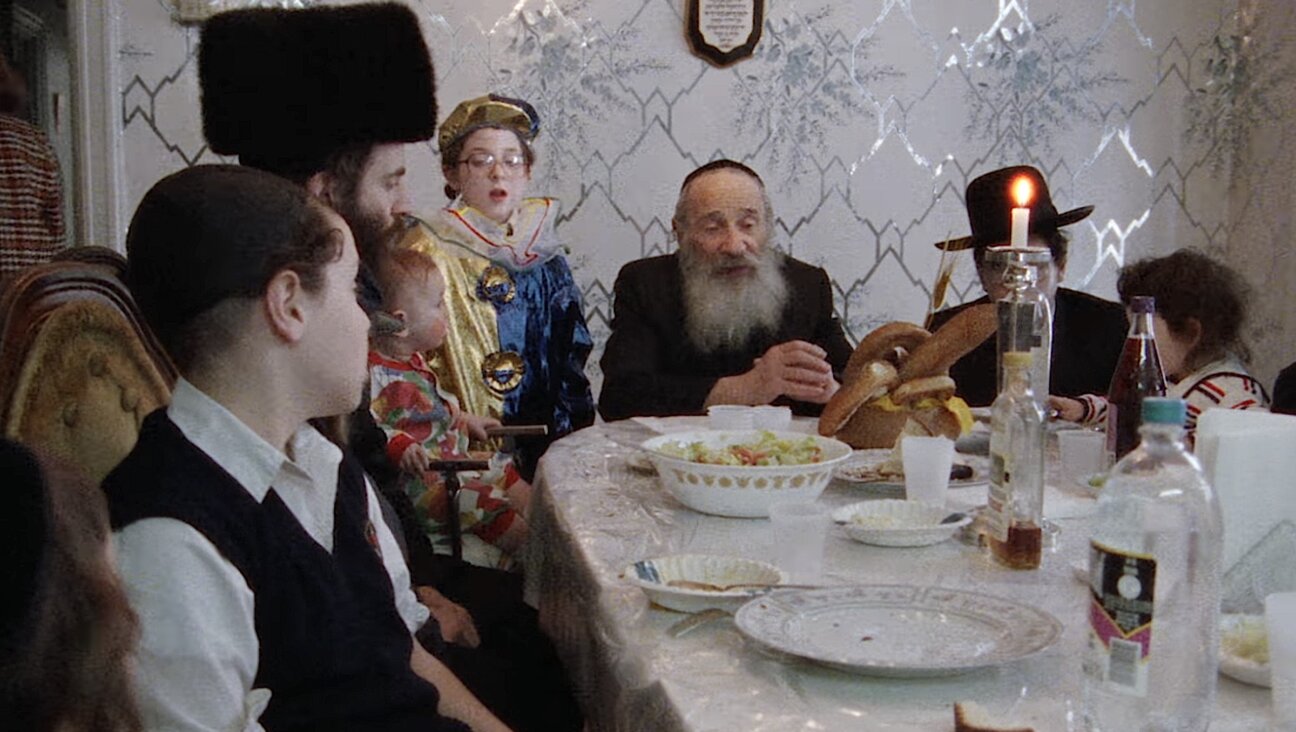A Portal to a Revolution in Forbidden Foods
My mom’s 1972 copy of “Portal to Good Cooking” hadn’t been opened for a while. Like, decades. I found it in the back of a kitchen cabinet when I was home for a visit to Chicago last December, and decided to bring it to New York with me, since my mom no longer cooks. What I didn’t realize was that I now possessed an American Jewish, Midwestern-mom time capsule that is, in its way, as shocking as homemade porn.
Let me explain.
The cookbook’s appearance is completely unassuming. Its pages are yellowing; its illustrations would look at home on a set of dish towels. When I was a teen growing up in the suburbs, this was simply my go-to source for the four basic food groups: brownies, lemon bars, toffee squares and peanut brittle.
What I didn’t understand then — or even until this afternoon, when I suddenly had to make the cream cheese chocolate cupcakes I hadn’t baked since the Carter era — is that this was no mainstream American cookbook. Hardly! It was published as a fundraiser by the Midwest division of Women’s American ORT, the group that has provided vocational training for poor Jews (and, later, poor anyone) for more than 100 years. All the recipes came from members and friends. As such, it is not just a cookbook; it is a perfectly preserved strand of Chicagoland Jewish DNA from the precise, explosive moment that mild-mannered mothers made the leap from “nice Jewish girls” to wild and wicked thrill-seekers (who still did all the cooking).
I don’t know if these hellions were embracing the sexual revolution, but boy were they embracing the other one: treyf! To put it in recipe terms, these were the women who could still whip up a Seder’s worth of gefilte fish (page 132, a recipe from, appropriately enough, Clare Fishman), but at the same time, they were flinging themselves at the forbidden fish fest called crab-shrimp delight, page 109, courtesy of Barbara Solomon. (And wouldn’t her ancestors be surprised?)
The book dutifully provides all the traditional recipes you’d expect: potato pancakes, beef brisket, noodle kugel. For a “low-calorie luncheon” — and doesn’t this insult everyone you’d invite? “Hey, Florence. Come on over Thursday. I’m having a low-calorie luncheon!” — the menu includes a melon cup, mixed greens with French dressing and a salmon ring. (There were a lot of rings back then, perhaps a holdover from the Bundt cakes of yore.)
All well and proper. But take a spin through the dips and — holy ham hocks on a half shell! It’s like going to some mythical Land of the Gentiles, where every meal is bursting with shellfish: There’s crabmeat dip from Judith Zwirn; and hot seafood cheese dip from Adele Levin (to be served with Melba toast, perhaps left over from the low-cal lunch), and hot lobster dip, courtesy of Marilyn Hurwitz. Which is not to mention the shrimp mold, the curried shrimp cups, the crabmeat toasties, crab bite delight, seafood quiche and baked clams.
The clam recipe comes from a “Mrs. Harvey Schwartz,” which just shows that while some Jewish women were ready to give up kosher cooking — and how! — they weren’t quite ready to give up the “Mrs.” for “Ms.” Or even the “Harvey” for whatever Ms. Schwartz’s own first name was. Or whatever her last name was, for that matter. One foot in the old world, one foot (or perhaps crab claw) in the new.
You see the same schism in the recipes themselves. While it must have been thrilling to mix a can of flaked lobster meat into a bar of cream cheese for the lobster dip, this is the same basic recipe my mom used to make the non-treyf spread she served at the bridge club: anchovies mixed into a bar of cream cheese. And that itself is suspiciously similar to the recipe for sesame cheese spread (sesame seeds mixed into you-know-what), and the hot crabmeat appetizer (crabmeat mixed into Philadelphia’s finest). It seems to me that if you were really trying to shake off the Old World, maybe using cream cheese as your main ingredient was not the best way to go.
Or maybe it was. Maybe cream cheese was the security blanket that gave these women the confidence to try the crabmeat surprise. Sort of like driving on Saturday — but only to synagogue. Or going all the way at Grossinger’s.
The sheer volume of treyf in this cookbook, and the fact that most of it was meant to be served to guests, makes the whole thing feel like a party itself, a swinging ’70s “love-in” where kosher and non-k boogied with licentious abandon.
Watching my mom’s bridge club meetings from the staircase as a kid, these recipes always looked pretty tame. Little did I know I was witnessing a revolution. Maybe it didn’t have a Woodstock, but it did have “The Portal to Good Cooking.”
Lenore Skenazy is a public speaker and author of the book “Free-Range Kids: How to Raise Safe, Self-Reliant Children (Without Going Nuts with Worry)” (Wiley, 2010).














